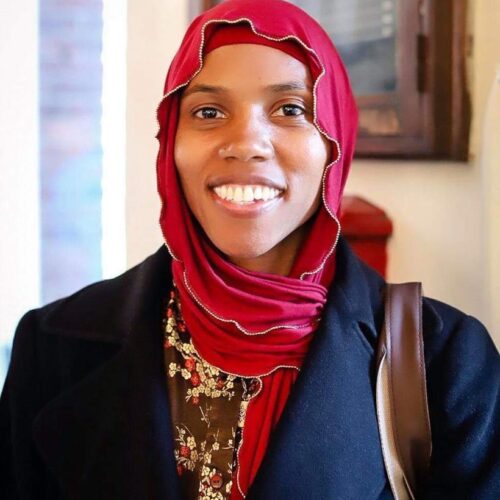Biography
Early Life
Jamillah Karim is a Muslim author, lecturer, and blogger with a focus on Muslim women in America.
Born on May 10, 1976, she emerged from a legacy deeply rooted in the Nation of Islam, as her father Ahmad Abdul-Karim was a devoted member. This foundation laid the groundwork for her profound engagement in religious activism.
She attended the W. Deen Mohammed High School a few blocks from the Atlanta masjid. Even at the age of 16, Jamillah openly voiced her observations about the pervasive influence of patriarchy. She sometimes thought her male classmates had it easier than the girls, not at school, but in life.
Academic Journey and Educational Achievements
Karim displayed an exceptional aptitude for academics.
She earned her Ph.D. in Religion with a focus on the Study of Islam from Duke University in 2004.
Prior to her doctoral studies, she also earned a Bachelor of Science in Electrical and Electronics Engineering from Duke University in 1997.
Her former academic appointment was as Associate Professor of Religious Studies at Spelman College in 2011.
Her influence extended well beyond the classroom, as she collaborated with esteemed institutions such as Harvard, Princeton, Emory, and Yale to further the discourse on the intersections of faith, race, and gender.
Pioneering Work and Contributions to Discourse
Central to Karim’s legacy is her pioneering work American Muslim Women: Negotiating Race, Class, and Gender within the Ummah (NYU Press, December 2008).
This book highlights her unwavering commitment to advancing the principles of justice and equality as well as her analysis of the racial dynamics within the American Muslim community.
Karim offers a perceptive look into the Atlanta and Chicago Muslim communities.
She illustrates how African American and South Asian American Muslim women navigate community or ummah.
Despite their differences, they embody the ideals of the ummah, which emphasize inclusivity.
Karim’s ethnography explains how principles of sisterhood, kindness, compassion, and social justice contribute to making cross-racial alliances where none might have existed before.
In recognition of the groundbreaking contributions of this work, the Association for Asian American Studies bestowed upon her the 2008 Book Award in Social Sciences.
Women in Religious Movements and Continued Impact
Her second book, Women of the Nation: Between Black Protest and Sunni Islam (NYU Press, July 2014), further exemplifies her commitment to highlighting the role of women in religious movements.
Karim sheds light on the leadership, contributions, and experiences of women within the Nation of Islam.
Jamillah Karim now often speaks at conferences both nationally and internationally within Muslim communities. Additionally, she occasionally shares her insights on spirituality through contributions to Azizah Magazine and her blog “Race+Gender+Faith.”

